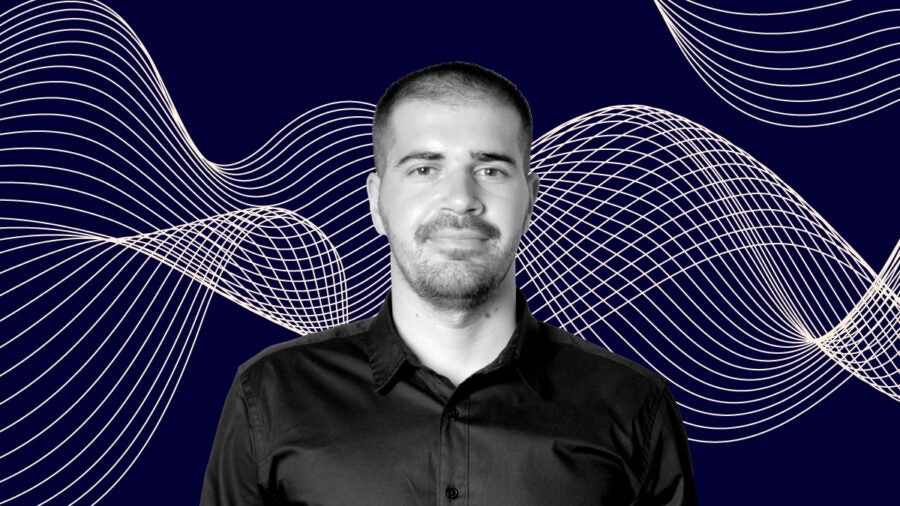
What position or experience has shaped your leadership style?
I’ve worked with all kinds of organisations, from small startup teams of around three people to larger corporate environments with 300 individuals on the development team alone. Taking on roles in companies of different sizes, with clients of different sizes, teaches you how to adapt to each stage of business growth.
My experiences with firms like JP Morgan and Amazon have been particularly impactful. You might have 100 people across several departments working towards the same goal. In that environment, everyone needs to be on board with the company’s vision and the end product, understanding how they fit in. A big part of a leader’s job is selling that vision.
How do you bring about change in organisations and teams that are set in their ways?
Often, larger companies have a harder time walking away from their old services and leaving behind the legacy tools they have been using for 10 or 15 years, say. Setting out key performance indicators that demonstrate the value of technological change helps to establish a direction that clients and the team can get behind. People like numbers; they like seeing tangible results.
It’s about encouraging people to have conversations. That’s when they realise they’re a part of something bigger
How do you motivate and inspire your team?
The tech industry is experiencing one of the most dramatic changes of the last 40 years with the commercialisation of AI. That, on its own, is a massive source of inspiration. You think: “I’m part of this huge movement”. When we look back 100 years from now and point to some milestones, the area that we’re working in, artificial intelligence, will be one of the most significant. That’s something that we talk about with the team. It reinforces that what we’re doing will be truly transformative for how people interact with technology.
Our colleagues are placed everywhere – Brazil, Thailand, Kosovo, Ethiopia – which means motivating people needs to be handled differently. We’ve set the business up so that individuals can work whenever they want, provided we come together virtually for weekly all-hands meetings. We pore over the developments in the industry, news stories, new tools, and new ideas and think about how we can apply them. It’s about encouraging people to have conversations. That’s when you realise you’re a part of something bigger. Active participation is really important.
What’s the biggest challenge facing your industry?
Unregulated AI is the most pressing threat. Regulating any technology raises questions: What do you count as responsible AI? How do you ensure that everything stays within the parameters that you set out?
Look at what Europe did with GDPR, which marked a radical change in how user data was handled at the time. Retrospectively, that has been a positive thing, but it was difficult for companies to navigate—and still is. It won’t be easy, but the goal is to have responsible AI that respects ethics and privacy and is controlled in its application.
What advice would you give to an aspiring leader?
Speaking as a co-founder rather than a CTO, building a startup isn’t your typical job. You really need to sell it to yourself. I’ve recently become a dad, and working on a product, especially in a new business (we are just one year old), is like becoming a parent—it’s a similar thing. In the beginning, there’s no schedule, so you have to be totally committed.
My number one piece of advice is to treat every day like it’s day one. My co-founder and our CEO, James Martin, and I have this ritual. Every day at around 7 am, we schedule a meeting called ‘Day One’. We use this time to discuss strategy; we look at where the business stands today and where we’re headed. Every morning we give ourselves a fresh start. That’s what helps us approach our roles with the same intensity, love, and passion we had on the first day. Things will get hard, things will slow down, and sometimes things will get easier. But in general, I view leadership, especially in tech companies, as a marathon of sprints.
What three qualities make a great leader?
The first is self-awareness. As a leader, a lot of things start with you. Being self-aware means understanding your role as a bridge between your team, product, and customers. It’s also important to recognise how your energy and enthusiasm influence those around you.
Communication is another. Talking to people in different scenarios and at different levels is an ongoing skill. Part of that is learning how to adapt your communication style as the business evolves from a startup to something more established. The people I look up to do this really well.
Finally, I think the best leaders are optimistic. If you see a bright future, the people you’re leading will too.

It’s about encouraging people to have conversations. That’s when they realise they’re a part of something bigger






